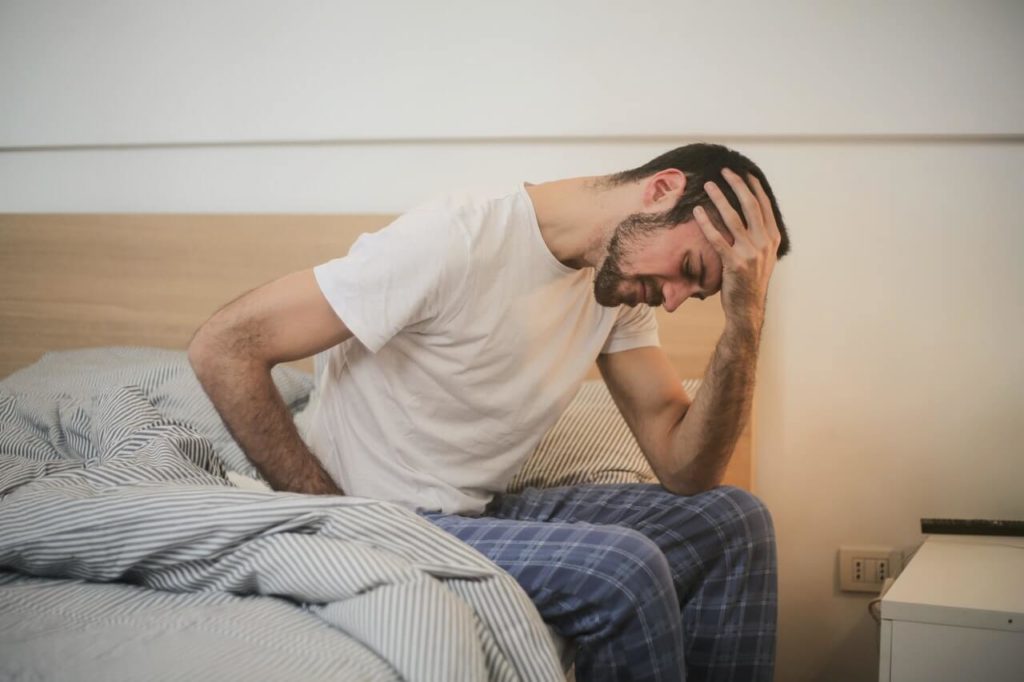Take a moment to imagine this situation; you are always busy making sure all your tasks are completed properly. Preferably, you only decide to end your working day when all your ‘’to do’s’’ have been finished. One day your vacation is on the horizon. You put in a little extra effort and a final push to make sure that you finish off all your work as well as you possibly can. Your holiday begins and … you get sick. You feel feverish, hot and cold at the same time and would rather stay in bed. Do you always get sick during holidays? Or when you have free time? According to Ad Vingerhoets from the University of Tilburg, there could be a number of reasons for this:
Free time stress
How do you feel in your spare time? Some people don’t enjoy their free time at all, this is because the things they do in their free time make them less happy. Think of mandatory family visits, or obligations towards your children (for example sports lessons). If you have to do things that you don’t really want to, you can unconsciously become ill so that you can avoid your other obligations. Of course, it can also be the case that the stress you experience due to these other obligations on your days off makes you feel sick.
Stress from work
If you are busy at work, you suppress your physical complaints. The signals from our body are pushed into the background, and therefore become more noticeable when we are not working. For example, experiencing a headache after a long day at work. During your work hours this headache is not convenient, so you find ways to temporarily stop feeling the headache. As a result you end up feeling this headache even more in your spare time! Therefore, when you go on vacation, you are more aware of physical complaints and feel them more intensely.
A different lifestyle
In your free time, your lifestyle usually looks a little different. You may go to bed a little later, sleep a little longer and therefore have breakfast or coffee a little later than normal. Our body loves structure and therefore reacts to these changes. In addition, you may drink more alcohol or take more unhealthy substances; your body will react to this and get sick.
Is it normal to get sick in your spare time or during your holiday?
Well, actually not really. Continuously ignoring physical signals can cause long-term problems. For example developing a burnout or heart complaints. If you often feel sick in your free time, it is therefore very important to take this seriously. The following tips can help you with this:
- Awareness: what does your life look like at the moment? What do you do on a working day? What do you do in your spare time? Is it realistic? Is it achievable? For example: do you look at and answer your emails in your spare time? Do you always have the feeling that you have to respond immediately to messages from others? How do you feel when doing this?
- Setting boundaries: Set limits for yourself at work and make concrete agreements with yourself. Some people do not experience stress when they read and reply to an email in bed. But not everyone’s the same. Do you experience stress? Then take these signals seriously and promise yourself to only check your mail during work hours. Do you schedule too many social gatherings on the weekend? Don’t plan anything for once, but (!) try to keep some structure on your day off.
- Make a clear transition from work to your free time: you can do this, for example, by walking or exercising for half an hour after work. Or do a simple breathing exercise. After this “transition activity” your work stops and your free time begins.
- Structure your day off and engage in active relaxation: research shows that when you spend your free time in an active way, you feel happier. Too much passive relaxation (Netflix, social media) often results in more stress in the long term. Active leisure activities include reading, listening to podcasts, taking care of plants / cutting, painting, cooking or calling a loved one.
- Maintain a healthy lifestyle as much as possible, also in your free time: your body likes a healthy diet, sufficient exercise, enough sleep, structure and regularity. Try to incorporate these into your days off.
How is your balance?
How is your work-life balance? What habits do you notice? While some habits may feel very normal, they may not be completely normal or healthy. For example structural overtime or always being on the go. This blog will help you learn how to break old habits and hold on to new ones.



